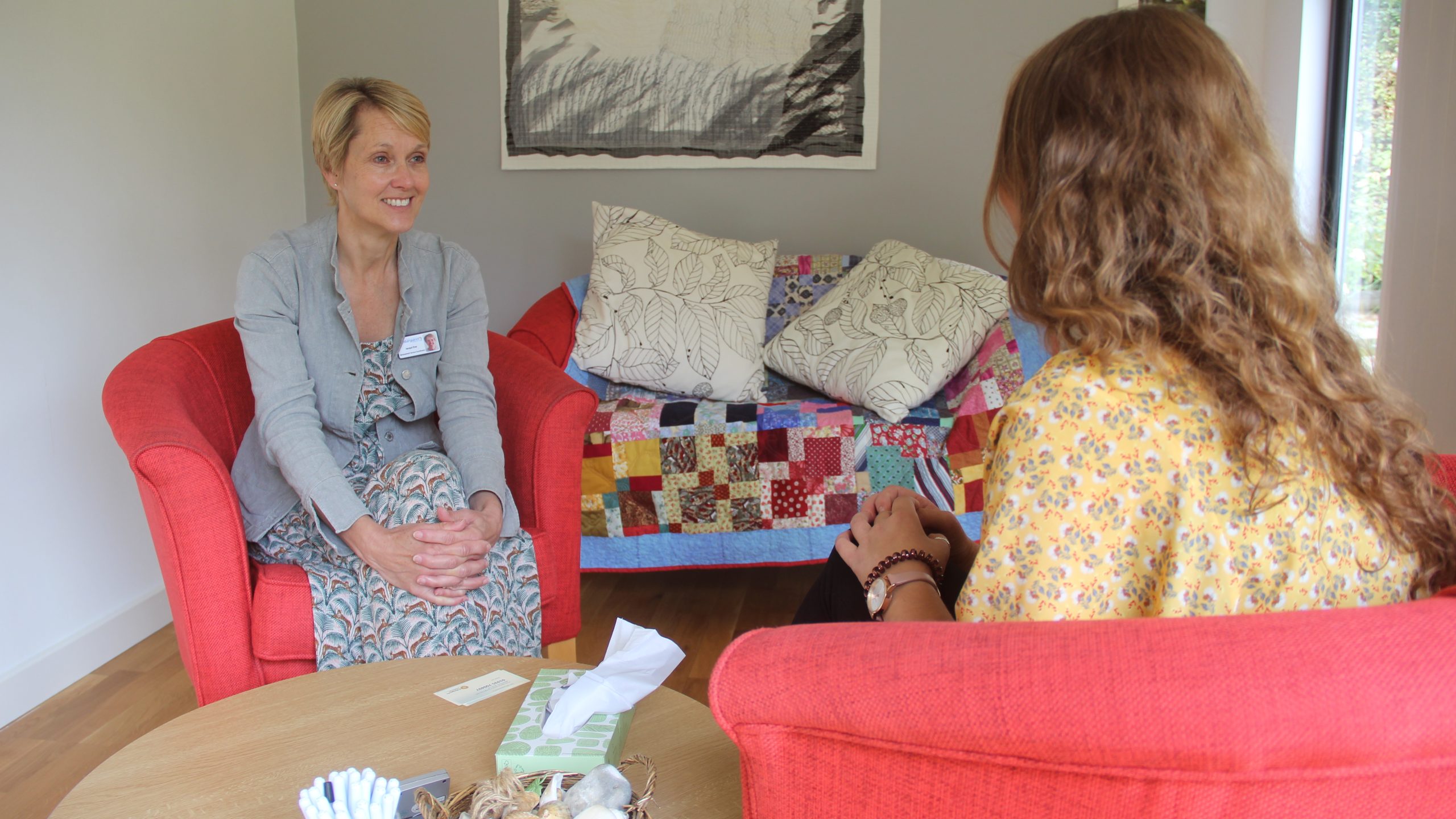We know that it can be difficult to support a family member or friend living with a life-limiting illness. St Margaret’s Hospice Care has designed this booklet to support you as you care. We hope you will find the information useful, please take the time to read it through. You will find space at the back for keeping important contacts.
Please keep this booklet safe so you can refer to it at anytime for any needs YOU may have for yourself or the person you are caring for.
Key Teams
Nurse led service that can be accessed by patients and their family members for support with palliative and end-of-life care.
Call: 01823 333822 or 01935 709480
Offers you the opportunity to explore your needs and what matters most to you.
Support is offered in a range of ways to individuals and family units, both before and after bereavement.
Can help you manage practical and financial difficulties when providing care.
Cares for the human spirit as well as offering full support to those who express their spirituality through a faith or specific spiritual pathway.
May aid relaxation, improve sleep and wellbeing and support to reduce stress.
How we can support carers
While caring for someone can be a rewarding experience, it can also bring a range of emotions you may not feel ready for. Alongside this, you may feel physically exhausted or need support financially.
Knowing where you can get the help and support you need can help you feel prepared when things start to change.
We understand every carer has different needs, individual to their own circumstance. St Margaret’s can help carers in a variety of ways, offering regular support and space to discuss your needs and identify the options available to best meet these.
An important part of caring is being able to care for yourself and balance your own needs alongside your role. Our Carer Support service can support you to explore what’s important and offers you a safe space to discuss what might help YOU as you care.
Carers have told us that our services help them feel less alone, and have helped them through difficult times.
Things to think about
- Are you struggling to provide hands on care? – do you need to talk to someone about care providers and additional equipment.
- Are you finding it difficult to cope with everyday household tasks? –cooking, shopping, cleaning.
- Make a plan for an emergency – if you become ill and this affects your ability to provide care.
- Are you able to go to work as normal or do you need additional support from your employer?
- Are you coping with all the households bills and expenses that need to be paid?
- Planning ahead – Have you discussed wills and funeral wishes with the person you care for? Do you have formal authorisation to represent or act on behalf of the person you care for?
- Have you considered talking to someone about your situation?
- Have you thought about what’s important to you and how you can keep yourself well?
- Do you get opportunities to take a break from your caring role?
When your caring role ends
Caring for someone can play a significant role in your life and can change over time. This may be because the person you support needs more care than can be provided at home or because they have died.
Taking time to adjust as your caring responsibilities change is important, it can be difficult to know how to manage your feelings and adapt to a new routine.
You may feel guilty for thinking about your life beyond your caring role, but it is completely natural and really important that you do.
If you have been bereaved our Bereavement Support Service is available to anyone affected by the death of someone who has been cared for by St Margaret’s Hospice. If you think we may be able to help or would like more information, call the Bereavement Team on 01935 709497.
Get in touch
Caring frequently brings challenges, rewards and a whole range of emotions. When you care for someone with a life-limiting illness, it’s perfectly natural to focus on their needs and forget about your own. A balance between the two will help to support your own wellbeing and resilience.
If you feel like you need support please get in touch, we are here to help. Call 01823 333822 or 01935 709480 and select option 1, or email [email protected].
Useful contacts
St Margaret’s Hospice Care – 01823 333822 or 01935 709480, www.st-margarets-hospice.org.uk, [email protected]
Carers UK – 0808 808 7777, www.carersuk.org
Provides an advice service for carers and they may be able to put you in touch with local support groups.
Carer’s Allowance Unit – 0800 731 0297, www.gov.uk/carers-allowance-unit
Provides information on Carer’s Allowance and how to make a claim.
Citizens Advice – 03444 111 444, www.citizensadvice.org.uk
Provides information and advice on money, legal and consumer problems.
We Hear You – 01373 455 255, www.wehearyou.org.uk
Provides free, professional counselling to anyone affected or bereaved by cancer or other life-threatening conditions.
Cruse – 0808 808 1677, www.cruse.org.uk
Provides bereavement counselling and support.
Mind – 0300 123 3393, www.mind.org.uk
Provides information and advice for people affected by mental illness.
Macmillan Support Line – 0808 808 00 00, www.macmillan.org.uk
A free and confidential phone service for people living and affected by cancer.
Relate – 0300 100 1234, www.relate.org.uk
Provides relationship counselling and advice.
Samaritans – 116 123, samaritans.org
Provides confidential support if you need someone to talk to.

